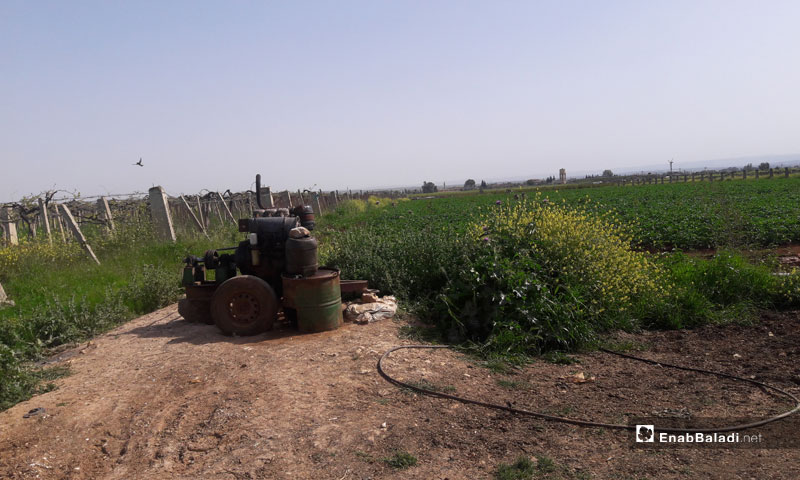



Enab Baladi – Daraa
Nine months have passed since the Syrian regime took over the governorate of Daraa, with little to no indication of improved services. On the contrary, government support for public services has been severely limited, whether at the level of the provision of water, electricity and fuel, or that of fully recovering the educational sector.
Moreover, the decline of the role of NGOs that had been operating in the governorate when it was controlled by the opposition has also exacerbated the services and livelihood deterioration felt by the population.
These crises prompted citizens to seek new solutions to overcome the government inaction and to improve their situation. They launched several initiatives to support some affected sectors with joint efforts and self-financing, all at the expense of the population.
Various maintenance works are currently being carried out in several towns and villages in Daraa countryside, including Saida, Athman, and Da’el. While some of these works are conducted by the regime-affiliated local councils, they are fully financed by the residents.
Abu Qassem, 45, is a local of Saida, in the eastern countryside of Daraa. He emphasized to Enab Baladi that funds were collected from residents and expatriates in order to rehabilitate vital facilities such as drinking water, power lines and schools. The work has been supervised by the local council. A complete restoration of services, including the rehabilitation of schools and of water and electricity networks, was accomplished at the expense of the population.
“In the end, the governor of Daraa inaugurated these facilities, thanking the population of Saida for their cooperation with the state, although the state has not contributed anything,” said Abu Qassem, who requested anonymity for security reasons.
In the town of Athman too, donations were collected and voluntary campaigns were launched by local residents with the aim of improving public services, according to a young local who spoke to Enab Baladi and asked to remain nameless. “After they allowed us to return to our destroyed town, and in light of the governorate council’s continuous negligence, we decided to do the collaborate ourselves with the local council. We managed to deliver electricity to most of the town’s neighborhoods, and to maintain the water network to a reasonable level, although it still needs more reparation.”
In Da’el, donations were solicited from the local population in public, with the local council calling on residents to donate for the installment of high-tension line from the Sheikh Maskin station to the town.
On its Facebook page, the council announced on April 29 the formation of a “people committee,” which will be entrusted by the citizens to raise funds under what it called “grassroots action.”
A report issued by the International Crisis Group (ICG) on April 25 criticized the services and security situation in the city of Daraa. ICG pointed out that the withdrawal of NGOs has left a gaping vacuum in the governorate.
“The glaring lack of functioning infrastructure, services and employment” has prevented citizens from returning to the governorate, according to the ICG report. International aid has been cut off, and thousands employed by the NGOs that were running the cross-border response have lost their jobs.
Several international and governmental organizations have implemented, in collaboration with the “pro-revolutionary councils,” several vital projects in Daraa, such as repairing schools, setting up medical points, supporting hospitals, and operating water pumping stations powered by solar energy.
A former employee of a humanitarian NGO that used to operate in rebel-held Daraa told Enab Baladi that “residents yearn for the old days when NGOs operated in the Syrian south.”
“It is true that NGOs did not create new infrastructure, but they did restore and revive the public facilities that benefited both the residents and the IDPs,” the former employee added, asking to remain nameless for security reasons.
While the NGOs used to fill the gap left by the state, their presence today is limited to the Red Crescent, which occasionally distributes food baskets to the most vulnerable groups.
if you think the article contain wrong information or you have additional details Send Correction